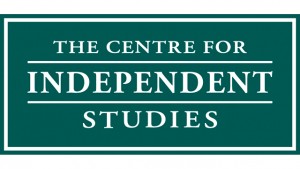Home » Commentary » Media Release » New CIS research: CSR warriors aim to push companies into open political activism
· MEDIA RELEASE
 The ASX’s Corporate Governance Council may have backtracked on the use of the ‘social license’ term, but it is naïve to think the proponents of corporate social responsibility (CSR) will cease trying to convert the business world into a political arena, says the author of a new Centre for Independent Studies analysis paper
The ASX’s Corporate Governance Council may have backtracked on the use of the ‘social license’ term, but it is naïve to think the proponents of corporate social responsibility (CSR) will cease trying to convert the business world into a political arena, says the author of a new Centre for Independent Studies analysis paper
Dr Jeremy Sammut, whose paper Curbing Corporate Social Responsibility: Preventing politicisation — and preserving pluralism — in Australian business will be published next week, said the aim of CSR professionals was to subvert companies from traditional business towards open political activism.
Access the full analysis paper
“This is revealed by the activist mindset of CSR professionals who assert that the next stage involves business’s ‘role in society as a driver of change’ and enabling companies to participate in driving ‘systemic change’ around social, environmental, and economic issues,” Dr Sammut said.
“On this understanding of the ultimate focus of CSR, the business of business will not just be CSR in the best interests of the business — the business of business will be politics.
“Corporate meddling in political issues that have only tenuous — if any — links to business interests is the line that CSR should not cross, if it is to avoid companies becoming inappropriately politicised.
Dr Sammut said that the politicisation of business is far from an abstract concern.
“It can be reasonable for companies to consider the social impact of their activities on relevant stakeholders to promote the best commercial interests of shareholders,” he said.
“However, the ASX’s proposed corporate governance standards — including that companies earn a social license by acting ‘socially responsibly’ with regards to inherently politically-contentious issues including human rights, climate change, taxation and wages — reflects the mindset, ambitions, and influence of the CSR industry.
“This debate should be a wake-up call about the willingness of CSR professionals to play politics with shareholders’ money at the margins of what might be permissible under company law.”
“And how much is being wasted on political statements? Millions of ‘mum and dad investors’ – including retirees who depend on dividends for income — are paying for corporate elites to support fashionable causes.”
Curbing Corporate Social Responsibility outlines how the abstract concept of a ‘social license for companies to operate’ threatens to become an ever more expansive justification for corporate involvement in social and political debates that are only faintly — if at all — connected to shareholder’s interests.
The paper recommends that existing CSR doctrines and structures across business should be qualified and countered by introduction of a new principle into the language and practice of good corporate governance: the Community Pluralism Principle.
The Community Pluralism Principle maintains:
Jeremy Sammut is a Senior Research Fellow at the Centre for Independent Studies and Director of the Culture, Prosperity and Civil Society Program.
New CIS research: CSR warriors aim to push companies into open political activism